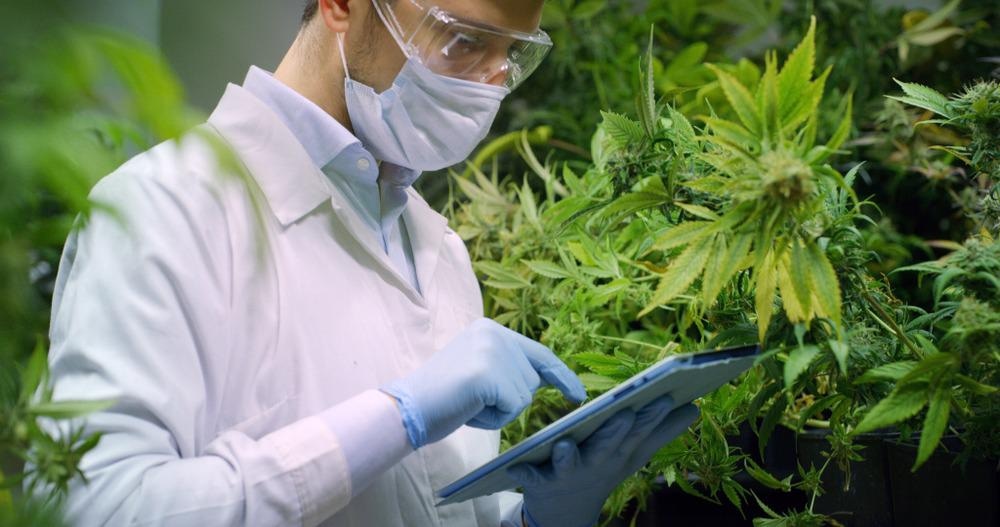Together with alcohol and tobacco, cannabis is one of the most commonly used substances. The legalization in several countries worldwide has had a strong impact on large-scale production, distribution, and sale. Big data contributes to the understanding of the impact of cannabis legalization and provides new directions in cannabis research.

Image Credit: HQuality/Shutterstock.com
In the U.S. only, the legal cannabis market is expected to be worth more than $66 billion by the end of 2025. The cannabis industry is looking for innovative ways to access data to improve product development. Like other sectors, many companies rely on data to make decisions, albeit the challenge is dealing with such data in a timely and cost-effective manner.
Moreover, given both the potential benefits and risks, there is significant interest in the analysis of surveys, health systems, and administrative data to evaluate the impact of legalization. There is also a lot of interest in understating the impact on the rates and the frequency of cannabis use.
Artificial intelligence and big data enable the collection and analysis of extremely large data sets that can assist cannabis research in different aspects, such as improving efficiencies, complying with regulations, predicting trends, and meeting consumer demands.
For instance, growers can optimize environmental changes and variables to increase crop production or can change the strain of their product based on consumer needs. They can also gain insight on what strains are useful for particular medical conditions, with consequent benefits for the customers too.
Examples of big data are consumer information, such as demographics, popular strains, and reasons for using cannabis. Big data relevant to the cannabis research are also information on the growing conditions (i.e. time and temperature), and distribution data, such as the quantity and pricing of multiple cannabis products.
Using big data from social media to discover consumer trends
New sampling approaches have been increasingly adapted to epidemiologic studies involving large-scale data collection of substance use. Social network analysis has emerged as a promising mechanism to generate insights to inform treatment and prevention research.
Recently, analysis of big data has been used as an innovative way to streamline the collection and dissemination of health-related data from large social media platforms. Although the analysis of posts from social media could take years for researchers, machines can perform the task in a matter of minutes.
A study applied a computational method, using “stochastic block modeling”, to identify communities of cannabis consumers connected to the Twitter accounts of dispensaries. The analysis of a network of almost 2.2 million nodes allowed to group users into three categories – illicit, recreational, and medical consumers.
This data could provide important insights for the public health surveillance of cannabis users. Besides being used for monitoring trends and public health issues, machine learning methods can also be a prediction tool, like in predicting the presence of cannabis use disorders in particular areas.
Correlation between psychoactive effects and flavor profile
There are several websites and commercial repositories that collect a large number of user reports. Big data can play a role in understanding the relationship between user reports and the chemical composition of cannabis.
With more than 400 chemicals, the main active molecules in cannabis are tetrahydrocannabinol (delta-9-THC) and cannabidiol (CBD). However, terpenes and terpenoids (responsible for flavor and scent) are suspected to also contribute to the activity.
Information on the psychoactive effects and flavor profiles were investigated in a study that analyzed terpene content of 887 different cultivars and more than 100.000 user reports, to establish a relationship between the reports and the molecular composition of the cultivars.
The study suggested that there is a flavor-effect correlation, which could provide users valuable information concerning the expected effects based on the aroma of the plants.
Biotechnology research guided by big data analysis
Ongoing research on biotechnology applied to cannabis can help improve productivity. Particularly, seed germination for in vitro-grown seedlings can play an important role in successful cannabis genetic manipulation and regeneration, leading to improved crop production.
In vitro seed germination is a multi-variable biological process that can be influenced by multiple physical factors, such as concentrations of plant growth regulators, carbon sources, medium composition, pH, and temperature, as well as genetic factors. Screening processes involve vast amounts of data.
Medium composition and carbohydrate sources for in vitro seed germination of cannabis can be assessed by using machine-learning algorithms known as Artificial Neural Networks (ANNs). Morphological traits such as leaf number and root length can be measured and the conditions that afford the best outcomes can then be identified.
The cannabis industry is rapidly growing. As a consequence, considerable research is needed on several topics, including marketing and promotion of products, insights on health outcomes, effects on treatment providers, local policy, and strategies for regulation.
Big data play a crucial role in providing the means to understand current trends and guide future developments, with benefits for consumers, producers, distributors, and all the other stakeholders involved.
Sources:
- Young, S. D., Padwa, H. & Bonar, E. E. (2019). Social Big Data as a Tool for Understanding and Predicting the Impact of Cannabis Legalization. Front Public Health, 7, 274.10.3389/fpubh.2019.00274
- Baumgartner, P. & Peiper, N. (2017). Utilizing Big Data and Twitter to Discover Emergent Online Communities of Cannabis Users. Subst Abuse, 11, 1178221817711425.10.1177/1178221817711425
- De La Fuente, A., Zamberlan, F., Sanchez Ferran, A., Carrillo, F., Tagliazucchi, E. & Pallavicini, C. (2020). Relationship among subjective responses, flavor, and chemical composition across more than 800 commercial cannabis varieties. J Cannabis Res, 2, 21.10.1186/s42238-020-00028-y
- Hesami, M., Pepe, M., Monthony, A. S., Baiton, A. & Phineas Jones, A. M. (2021). Modeling and optimizing in vitro seed germination of industrial hemp (Cannabis sativa L.). Industrial Crops and Products, 170, 113753.10.1016/j.indcrop.2021.113753
Further Reading